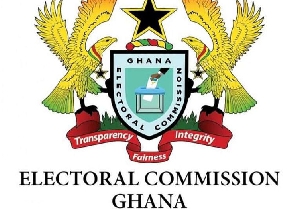Some eligible voters in Tema Community One have supported calls against the decision of the Electoral Commission to effect some proposed changes in the conduct of the 2024 general elections scheduled for December 7th.
The EC has announced its intention to carry out some reforms, including stopping the use of indelible ink on voters’ fingers after voting and closing the polls at 1500 hours instead of the known 1700 hours.
According to the commission the changes aimed at improving transparency and orderliness in the vote collation process, drawing on experiences from the 2020 elections.
Several political experts and watchers have kicked against the EC move to reform the electoral process, indicating, that it would go against the Public Elections Regulations, 2020 CI 127 Section 33 (2) C, which makes it mandatory for every voter to be marked after voting.
The residents noted would have an adverse effect on the smooth running of the elections instead of its intended purpose.
Augusta Mensah, a nurse at the TMA Community Clinic, speaking to the Ghana News Agency, questioned the reliability and effectiveness of the biometric verification device in preventing electoral fraud.
Mensah stressed that the machine could break down at any point; what is the guarantee that it’s going to be smooth when we know the kind of network we use in Ghana.
She suggested that the old practice of applying indelible ink to the pinky finger after voting should be done alongside the biometric to help prevent any fraudulent electoral acts.
Touching on the early closing of polls, she said that would hinder the democratic process by limiting the franchise for those who, for some reason, could not get to a polling centre before 1500 hours to cast their votes.
Emmanuel Asempa, a worker, said some voters, including himself, always struggled to vote during elections as the workplace and the polling centres were far apart.
Asempa explained that even though he works in Tema, he usually voted at Afienya, which would make it difficult for him to vote before the proposed time.
Mrs. Grace Asantewaa Partey, a trader, said the early closure time would adversely impact traders as they needed sufficient time to conduct their businesses before heading to the polling centres to cast their votes.
“Please, let’s maintain the old time so that we can also come and make sales and attend to customers before we go and vote.”
Politics of Friday, 12 January 2024
Source: GNA

















